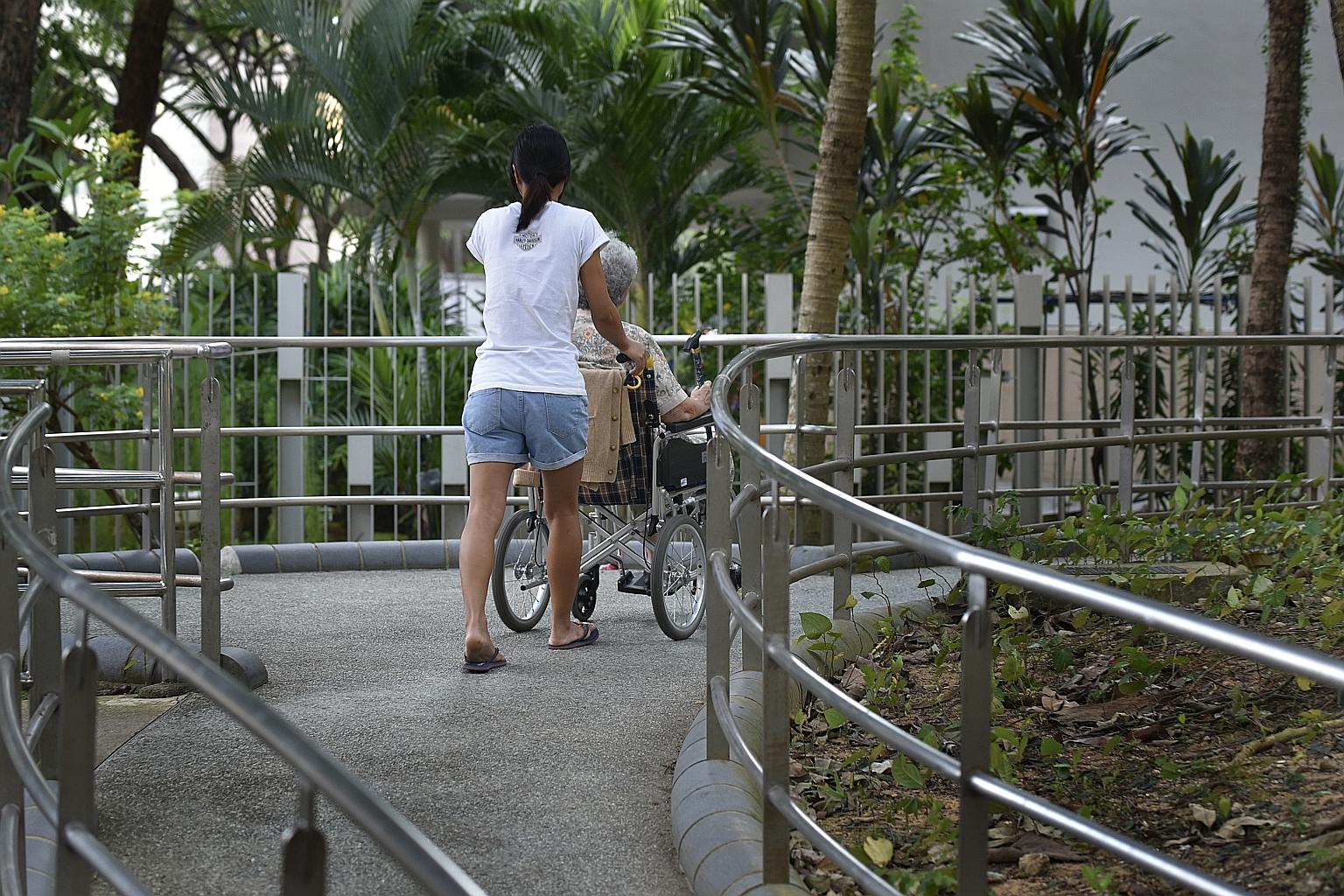More protection for seniors, those with disabilities
Proposed law will allow MSF to intervene and protect these vulnerable groups from abuse and neglect
Sign up now: Get ST's newsletters delivered to your inbox

The introduction of the Vulnerable Adults Bill, which is slated to be debated in Parliament later this year, comes amid a rapidly ageing population, with more seniors likely to be unable to care for themselves.
PHOTO: DIOS VINCOY JR FOR THE STRAITS TIMES
Follow topic:
Seniors and people with disabilities who cannot care for themselves will get more protection under a proposed law introduced in Parliament yesterday.
The long-awaited Vulnerable Adults Bill, if passed, will allow the Ministry of Social and Family Development (MSF) to intervene and protect these vulnerable groups from abuse and neglect.
Its officials would then be able to enter private premises to assess a person's well-being. They can also temporarily relocate vulnerable adults to safe places such as shelters and disability homes. At present, they do not have such powers.
The proposed law also lets officials apply for protection orders in court to prevent abusers from causing further harm.
In extreme circumstances, the ministry can ask the courts to give its officials powers to step in even if the vulnerable person refuses help.
This would typically involve those who are pressured by their family members, said the ministry in a statement after the Bill was introduced.
The MSF added that whistleblowers will be protected under the law, while abusers will face "enhanced penalties", although it did not spell out details of the protection and heavier punishment.

-
900,000
Expected number of people aged 65 and older by 2030.
83,000
Expected number of elderly people living alone in 2030.
103,000
Estimated number of people with dementia by 2030.
The proposed law comes amid a rapidly ageing population, with more seniors likely to be unable to care for themselves.
Singapore has around 500,000 people aged 65 and older, and the number is expected to almost double to about 900,000 by 2030.
The number of elderly folk living alone is also projected to rise from 35,000 in 2012 to 83,000 in 2030, the ministry said.
An estimated 103,000 people will have dementia by 2030.
One in 10 people aged 60 and older are now stricken by it, a condition that causes the gradual decline of the brain and such abilities as thinking, memory and judgment. The proportion rises to one in two among those aged 85 and older.
The Vulnerable Adults Bill, mooted in October 2014 by then-Minister for Social and Family Development Chan Chun Sing, was more than three years in the making.
At that time, Mr Chan described it as "the final safeguard, the final resort", and stressed that it was not meant for people to push the responsibility of caring for vulnerable seniors to the state.
Mr Chan also said that the law was likely to be passed by 2015, but in July 2016, the ministry held a month-long drive to seek public views.
It received 43 responses from individuals and groups such as family service centres, the Law Society of Singapore, the Singapore Medical Council, and the Association of Women for Action and Research.
In September 2016, it said there was "strong support" for the proposed law, which is slated to be debated in Parliament later this year.

